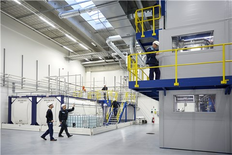- The demo unit for renewable MEG from sugar was commissioned in early February.
- The cooperation agreement between the companies was announced in 2017.
- The Denmark plant aims to convert sucrose, dextrose, and second-generation sugars into MEG.
- The global market for MEG is valued at around $25 billion.

Project Overview
In early February, Braskem and Haldor Topsoe announced the commissioning of a demonstration unit in Lyngby, Denmark, to develop monoethylene glycol (MEG) from sugar. This pilot plant aims to confirm the technical and economic feasibility of producing renewable MEG on an industrial scale.
Cooperation Agreement
The cooperation agreement between Braskem and Haldor Topsoe was announced in 2017. The focus is on developing a new technology to convert sugar into MEG within a single industrial unit, reducing initial investment and making the process more competitive.
Raw Materials and Conversion
The Denmark plant is designed to convert various raw materials, including sucrose, dextrose, and second-generation sugars, into MEG. Currently, MEG is produced from fossil-based feedstocks such as naphtha, gas, or coal.
Market Context
MEG is a key component in the production of PET, a resin widely used in the textile and packaging industries, particularly for making bottles. The global market for MEG is valued at approximately $25 billion.

